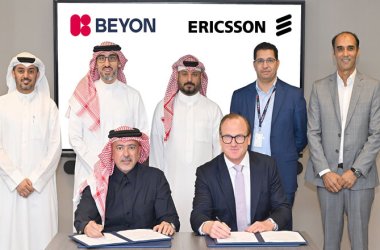Mir Sarmad Khero, Director – Enterprise Business Solutions, Raqmiyat LLC tells Tahawultech all about digital procurement and why it is vital in today’s dynamic digital transformation landscape.

How has digital procurement transformed procurement processes in the public sector, and what are some notable benefits that have emerged from its implementation?
Public sector procurement differs significantly from that of private organizations due to the involvement of multiple stakeholders and various stages in the process. Public entities must adhere to federal procurement laws and maintain transparency throughout their operations. Automating this process can enhance efficiency, reducing procurement cycle times by at least 40%, increasing visibility, and ultimately eliminating the need for paper documentation.
Can you share some examples of how companies are utilizing auctions to bring down procurement costs, and what best practices they should follow to maximize savings?
There are several strategies for utilizing auctions to optimize procurement costs. At Raqmiyat, we have assisted numerous organizations both globally and regionally in streamlining their procurement processes through auctions. Our clients utilize English, Dutch, and Japanese auctions to maximize savings. We advocate for auctions as they provide a fair opportunity for all qualified suppliers, enabling customers to secure the best market prices. It is best practice to conduct auctions with similar specifications to ensure an equitable comparison; it is essential to avoid comparing dissimilar items.
How crucial is end-to-end visibility into procurement spend for an organization, and what tools or technologies are most effective in achieving this transparency?
Achieving visibility into organizational spending is essential for effective procurement performance evaluation. Insight into spending behavior—such as identifying top suppliers, key buyers, category-specific expenditures, and overall consolidated spending—enables informed decision-making. This can be accomplished through the implementation of spend visibility tools that seamlessly integrate with any ERP system.
What steps can organizations take to transition to a paperless procurement office, and what are the key advantages of adopting such a model?
Shifting organizational mindsets is crucial, as organizations must develop trust in technology. Many have successfully transformed their procurement processes through automation, significantly reducing paper use within their departments. I have observed procurement offices evolve from resembling post offices to fully digitized operations. The primary advantage of this transformation is increased efficiency, providing immediate access to information and preventing issues such as missed contract expiry deadlines that often arose from managing physical documents.
In what ways can digital procurement solutions enhance collaboration with suppliers, and what impact does this increased collaboration have on the overall supply chain efficiency?
Digital procurement enables suppliers to connect with buyers in a more systematic manner. By shifting all communication to a centralized system, the reliance on emails and phone calls is significantly reduced. This facilitates tracking of current and upcoming procurement opportunities for both parties, allowing suppliers to plan accordingly. As a result of this digital process, both buyers and suppliers have the same visibility into current and future needs, which minimizes the likelihood of miscommunication.
How can digital procurement contribute to sustainability goals within organizations, and what specific strategies can be implemented to ensure more sustainable procurement practices?
A sustainable supply chain is vital for competitiveness in the post-pandemic era, were risks and volatility shape corporate strategies. Procurement, as a strategic asset, requires a shift from traditional mindsets to focus on “lowest total cost” instead of just “lowest purchase price.” Adopting this approach enables companies to effectively manage procurement costs while fulfilling their social responsibility for sustainable development. Procurement professionals are essential in advancing organizational sustainability initiatives and promoting responsible practices. Sustainability is an ongoing journey, requiring continuous efforts for lasting impact.





